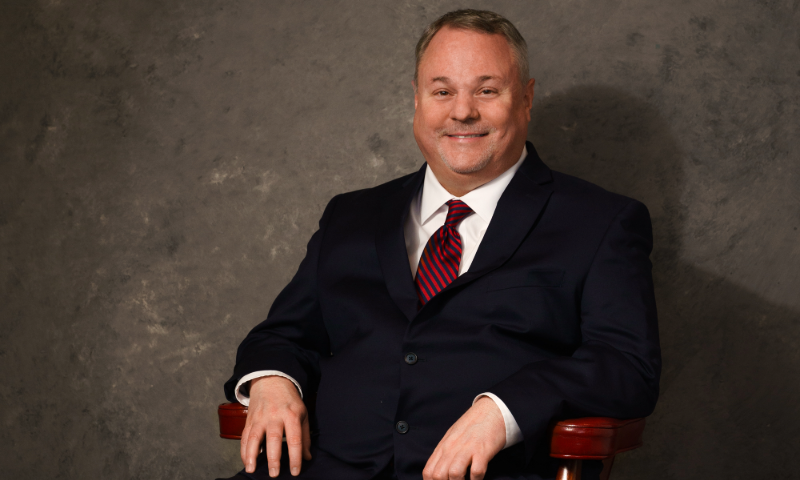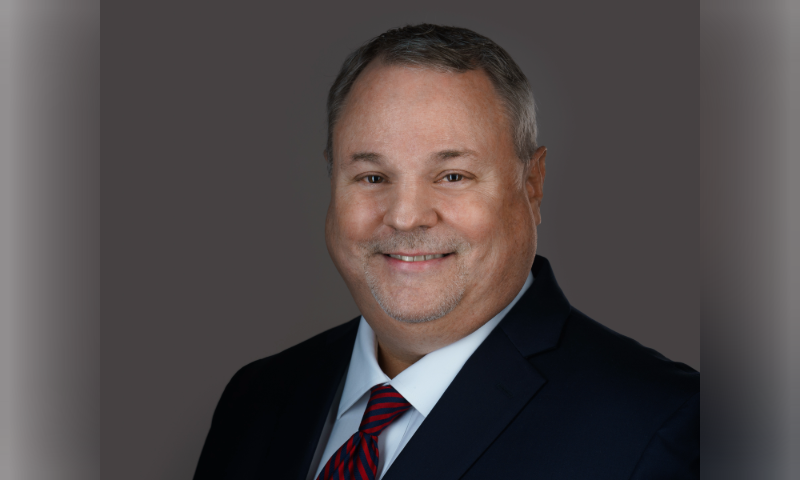Chris Hutchins is a seasoned executive with over 20 years of experience in healthcare analytics. He is a member of the Healthcare Financial Management Association and Medical Group Management Association. He is also a member of the International Institute for Analytics Healthcare Analytics Research Council and a member of the Analytics Expert Network. He currently serves as an Advisory Board Member for Modal and Board Member for the Healthcare Data and Analytics Association.
Recently, in an exclusive interview with Digital First Magazine, Chris shared his professional trajectory, insights on the role of advanced analytics and AI in transforming healthcare, significant career milestones, personal hobbies and interests, future plans, words of wisdom, and much more. The following excerpts are taken from the interview.
Hi Chris. Please tell us about your background and areas of expertise.
I have had incredible opportunities to work for and learn from many fantastic leaders over the course of my career. The first of these opportunities came through my mom. She was a supervisor in the radiology department at a local hospital near our home in New Hampshire. I worked there part time on weekends and school vacations, and this experience helped me see healthcare from a different perspective. The most impactful part of my experiences were the interactions that I observed. I saw real passion for helping people – not only doctors and nurses, but in every role that made the hospital run. It was that experience that eventually led me to my current career path. There were many roles that provided opportunities for me to learn various aspects of healthcare. From learning the billing and customer service support for a small practice, to budgeting, building budget tools, developing, and implementing systems, revenue modeling and database development. These things led to roles in information technology as a director and eventually to deputy chief information officer and, at one point, adding two additional roles that I held concurrently: program director for the implementation of an electronic health record and billing system, and corporate director for business intelligence services to merge three data warehouses and teams into one. Through these opportunities, I gained experience with complex data conversions, vendor contracting and management, team and leadership development, data governance, roadmap development and strategic planning. These roles, along with data and analytics, which has been the focus of my current and prior role, have allowed me the privilege to collaborate with extraordinary people at every level in many organizations.
What role do you see advanced analytics and AI playing in transforming healthcare, and how are you leveraging these technologies?
There are many ways that both are already fueling and accelerating transformation. Robotic Process Automation (RPA) is being used to address high volume repetitive processes that are largely rule-based. The most prevalent examples that I have seen have been in revenue cycle workflows. Predictive analytics are in use in many different aspects of healthcare. They are being used to predict risks for development of clinical conditions, complications, and incidents like falls. They are also being used to predict demand for services based on numerous factors like changing demographics in a geographic area, weather events, and seasonal trends to name a few. There are some exciting capabilities that are emerging that are aimed at relieving administrative burden for clinicians, which has been a growing challenge since the advent of the electronic health record (EHR). The use of Generative Pre-Trained Transformers (GPTs) within an EHR to enable a clinician to query the record with a chatbot for specific key elements of a patient’s history and retrieving a concise summary in near real time is one example. Another is the use of ambient listening to assist with documentation by providing an initial visit summary for a clinician to review and finalize rather than having to write it after the visit. The evolution of Large Language Models (LLMs), AI and GPT is rapidly accelerating. The possibilities are seemingly limitless. There are solutions that will likely develop over a matter of months that may not seem feasible today.

How do you stay current with emerging trends and innovations in healthcare analytics, and how do you apply this knowledge to drive innovation?
I subscribe to and read many publications like CDO Magazine, Becker’s Hospital Review, Crain’s, and Modern Healthcare and follow many organizations, leaders, and technology companies on LinkedIn. I make it a point to take a meeting or two each month to learn about emerging solutions. Additionally, I use my personal network that has grown over many years and frequently connect and consult with others on current topics or technologies. I also take advantage of opportunities to attend events and webinars based on the topics. All of these things inform my thinking as I collaborate with my teammates to develop and evolve our roadmap.
What are some of the most significant challenges you’ve faced in leading healthcare analytics efforts, and how have you overcome them?
The most significant challenge by far is that there are so many systems and data sources that house our healthcare data that it is very difficult to provide enterprise views of our performance as a health system. The most difficult sources to solve this for are clinical systems. This is a common challenge for large and growing health systems that acquire a diverse collection of vendor solutions that all have their own workflows, methods of data capture and storage, and normalization and master files. The first obstacle is often that there is not a replica of the EHR data set that can be used to enable access to the data without risking impact to a system that is at the heart of care delivery. While sometimes that is the only option, it is not a first choice. Creating a common model to combine and store data from these systems takes a multi-disciplined team and can be very labor intensive and expensive. Data engineers, analysts, architects, clinical informaticists, and other subject matter experts are key roles for tackling this challenge. In my experience, starting with a specific use case has been the best way to make progress on a multi-year endeavor. This is the approach that my teams have had success with over the years, and a similar approach is yielding good results with use cases that are in progress now.
What has been your most career-defining moment that you are proud of?
I was about four years into my role with my previous employer. My team and I had invested those years to build a solid foundation that was enabling teams across the health system to begin to optimize and manage their functions more efficiently. These functions ranged from population health, research, care coordination, revenue cycle, system strategy, human resources, quality and safety, numerous clinical departments, emergency services, workforce safety, and many more. At one point, I was asked to provide an overview of our analytics to a visiting health system along with one of our executive vice presidents. That led to presenting to the company president and chief executive officer, and, ultimately, to the board of governors. This was a great moment that was the product of collaboration and partnership with literally hundreds of people over those four years and that felt so rewarding. At that moment, I had no idea that within 24 months, we would be in the middle of a pandemic. The capabilities that we had developed enabled our teams to quickly pivot and provide near real-time analytics that were critical as the health system treated more COVID-19 cases than any other health system in the U.S. This was most certainly the result of the amazing work of so many extraordinary people, and I am proud to have worked alongside them.
If you could have a one-hour meeting with someone famous who is alive, who would it be and why?
My choice for this might come as a surprise, but I would love to sit down for an hour with the NBA Hall of Fame center Shaquille O’Neal. I admire his fantastic career in the NBA, but what inspires me most is seeing the enormous success that he has achieved after he retired as a basketball player. He is highly regarded for his role in broadcasting as well, but his achievements outside of basketball are truly remarkable. He owns hundreds of businesses, has starred in movies, released five studio albums, and likely other endeavors that I have not learned of yet. This is all quite impressive, but it is secondary to taking care of his family. His support and involvement with his children is well known and documented. There are countless stories about his kindness and generosity being expressed to people he does not know where he became aware of the need of an individual or a community, and he simply and quietly took care of it because he had the means. He has left a mark on every community that he has lived in by identifying ways he can contribute. This may be in financial ways, volunteering his time, or volunteering as a reserve officer. Yes, he took it upon himself to get trained so that he could be a resource to law enforcement in his community. I am certain that I could learn a lot from someone who clearly has an effective way to manage so many things concurrently.

Is there a particular person you are grateful for who helped get you to where you are?
I am grateful for so many who have helped me over the years. There are countless life lessons that were essential and only came through the investments that my mom and dad made in me and my brothers. I will always be grateful to a gentleman named Brad who hired me at two different organizations. He gave me opportunities that allowed me to learn about many aspects of healthcare and opened subsequent doors. I am also grateful for the teams with which I have been fortunate to work. I would not be where I am without their amazing work – and at times blind trust – as I stepped into new roles. I have been truly blessed.
How do you keep your mind healthy and stay resilient? And how do you motivate your team?
I enjoy spending time with family and seeing my two sons grow as men and achieving their goals. Most of my reading is related to my work, but I thoroughly enjoy that. I also like to stream a good courtroom drama or documentary series, attend live music events, or listen to recorded music. When it comes to motivating my team, I probably have an unfair advantage in that they are an exceptional team of people who show up motivated and are passionate about their work. Working with data and analytics requires a great deal of time developing solutions, reports or dashboards and teams do not get to see the direct impact of their work. An important aspect of this work is providing opportunities for team members to present their work to stakeholders and leaders where they can hear direct feedback. I have also found holding monthly town hall style meetings provides a good vehicle to make that connection. The agenda for these meetings is intentionally light with only two or three topics with two of them being standard segments. One segment provides the opportunity for a team member to share their story and career journey. The stories are often inspiring, funny, and sometimes both. Another segment is reserved for a guest speaker, usually a business partner or leader that is invited to provide an overview of their function and to share how the data team’s work is making a difference. The other segments vary but often include a highlight of recently completed work that many of the team members have not seen as they are working on other projects. One-on-one check-ins with my team members are also helpful. I usually have one or two per week, in addition to more frequent ones for my leaders. These are just a few ways that I have found to be effective. However, other approaches may be needed as dynamics change.
Where do you see yourself in the next 5 years?
I will be incredibly grateful to have my family all in good health and thriving and the same for all my current and new friends and colleagues. It is also my hope that I will have made meaningful contributions to my family, friends, neighbors, teammates, and organization, and helped them to achieve their goals. I am also looking forward to continued opportunities to invest in the next generation of data leaders who will continue to innovate and use data and analytics to accelerate transformation.
What advice would you give to someone looking to move into a leadership role in advanced analytics?
There are many pathways that may lead to leadership roles, but there are commonalities in most of them. The first one I will highlight is establishing good relationships. Analytics, in most cases, measure performance of essential functions that are not typically managed by an analytics team. Getting to know the leaders and teams will be well worth the time, as will doing some reading to understand the functional area of the business that the data comes from if it is not an area you have spent much time in. Understanding the high-level goals and strategies of your organization will be important to your success. These goals almost always require multiple disciplines and collaboration across departments, functions, teams and roles. Your chosen field in data and analytics is very much a team sport. Your success will be based on how you collaborate and help your colleagues and teammates to be successful. This will establish you as a go-to person, good collaborator, good teammate, and someone who gets things done. This generally will open doors to more opportunities and greater responsibility over time. I would suggest that one embrace the process and learning opportunities and think of this as an investment in your future. Time is in your favor.






